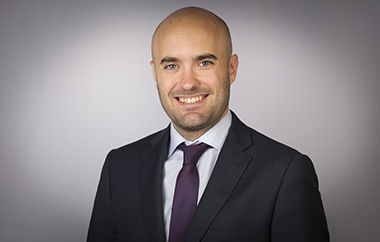PhD in Energy and Process Engineering
Current position: Postdoctoral Researcher in Energy Technology at Chalmers University of Technology, Sweden and Research Scientist at SINTEF Energy Research, Norway
Research focus: energy and process engineering and dynamic modelling
The energy sector is the main contributor to climate change, accounting for around 60 percent of total global greenhouse gas emissions. Rubén’s research includes process design, modelling, simulations, plant wide control, and experimental testing at industrial and research facilities. His work focuses on the development of high-fidelity steady-state and dynamic process models, and on testing novel solutions in a virtual environment by means of dynamic simulations within digital twin technology.
Rubén’s research includes the development of dynamic process models for various de-carbonised thermal power generation and industrial processes.
CV as submitted for the Green Talents award (2019):
Chalmers University of Technology, Sweden
Research focus: energy and process engineering and dynamic modelling
The energy sector is the main contributor to climate change, accounting for around 60 percent of total global greenhouse gas emissions. Rubén’s research comprises emission reduction and flexible operation of thermal power plants and energy-intensive industrial processes. His research includes process design, modelling, simulations, plant wide control, and experimental testing at industrial and research facilities. His work focuses on the development of high-fidelity steady-state and dynamic process models and on testing novel solutions in a virtual environment by means of dynamic simulations within digital twin technology. A digital twin is a virtual representation of, for example, an existing complex combination of processes. The twin integrates all data of the existing processes and models their relations and behaviour. With the help of a digital twin, processes can be simulated, predicted, and optimised without having to change anything in the real processes.
Rubén‘s research includes the development of dynamic process models for various de-carbonized thermal power generation and industrial processes. His main topics are: CO2 capture processes by chemical absorption, applied to thermal power plants and primary steelmaking processes, concentrated solar thermal power plants (CSP), and operational flexibility of biomass and waste fired combined heat and power generation plants (CHP) to balance variability of generation by non-dispatchable renewables. Other topics include polygeneration of heat, power and bio-fuels by retrofitting existing units for the co-production of biofuels, development of a pre-treatment process of bio-waste streams to blast furnaces, and advanced biofuel production from off-gases in blast furnace in the primary steelmaking industry.
Rubén’s use of the promising digital twin technology attracted positive attention of the jury. It is considered a convincing approach to more emission reduction and flexible operation of thermal power plants and energy-intensive industrial processes.






